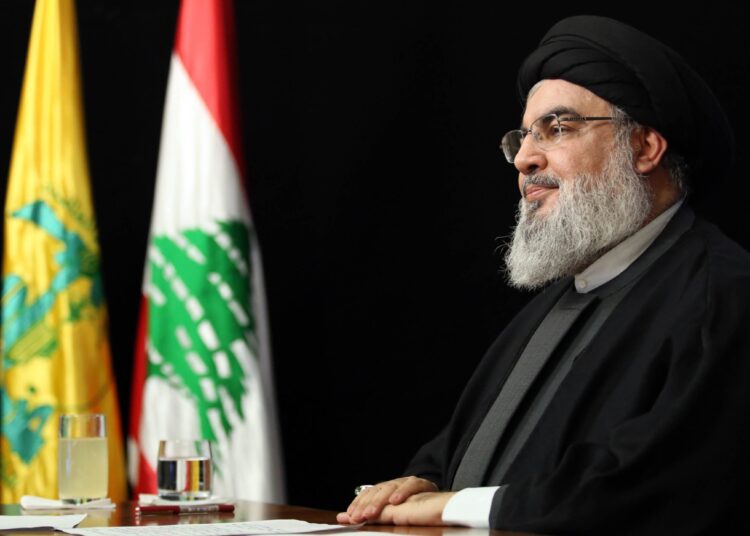On the twenty-seventh day of the ongoing conflict between Israel and Palestinian groups, the international focus has shifted to Lebanon, where Hassan Nasrallah, the Secretary General of Hezbollah, is scheduled to deliver a highly anticipated speech in the upcoming hours. The sentence “The future world is the world of Palestine” adorns the screen displaying the Secretary General’s speech in Beirut.
Numerous analysts consider the Secretary General’s address to be of high significance, believing that it could potentially hold the key to the outcome of the current situation in Palestine. A prevailing hypothesis suggests that, given Israel and the United States’ resistance to a ceasefire, the region is inching closer toward a point of no return.
Yesterday, Hezbollah announced a simultaneous assault on 19 Israeli targets. While confrontations between Hezbollah and Israel have intensified over the past few days, many experts argue that Hezbollah has yet to fully engage in the conflict and reveal its capabilities.
On November 2nd, Yediot Aharonot—renowned among Israeli newspapers—discussed the prospect of Hezbollah’s full-scale involvement in the ongoing war, considering the Secretary General’s speech as decisive.
On October 7, following the commencement of the “Al-Aqsa Flood” operation, Hezbollah released a statement hailing the operation as “heroic”. Continuously, it implored Arab and Islamic nations, as well as free people worldwide, to support the Palestinian nation and various resistance movements.
Naim Qassem, the Deputy Secretary General of Hezbollah, stated at a solidarity gathering for the people of Gaza in Beirut on October 13, “Hezbollah will offer assistance within the framework of its vision and will act when the time is right.” Regarding the Al-Aqsa Flood operation, he expressed, “This attack exposed the weakness of Israel.”
Nasrallah’s significant speech coincides with the visit of United States Secretary of State, Anthony Blinken, to Tel Aviv. Despite mounting civilian casualties in the Gaza conflict and global efforts to halt Israel’s attacks, Washington officials have expressed opposition to a comprehensive ceasefire but are considering a temporary and limited truce.
On October 31, Israeli Prime Minister Benjamin Netanyahu dismissed the possibility of a ceasefire and declared that the war in Gaza had entered its third phase. He stated, “The first phase has concluded, the second phase—comprising airstrikes—is still ongoing, and now we have entered the third phase with the expansion of the ground offensive in Gaza.”
Simultaneously, General Yahya Saree, the spokesperson for Yemen’s armed forces (Houthis), announced Yemen’s participation in the battle against Israel, confirming missile and drone strikes on Israeli targets following the news of Israel’s ground attacks on Gaza.






